How Did Uranus Get Its Name? What You Need to Know!
Last Updated on
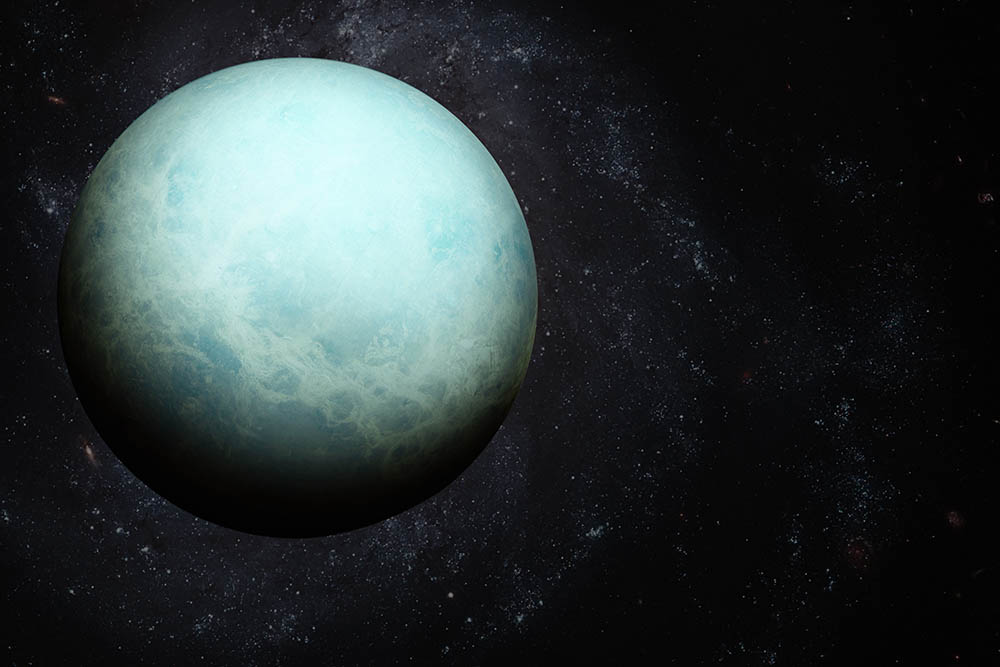
Uranus was named by Johann Elert Bode 1 in the 1700s, not long after it was confirmed to be a planet. Bode suggested that just as Saturn was the father of Jupiter, so the 7th planet should be named after the father of Saturn.
Because of the ice giant’s name often being pronounced as “your-anus,” it has since been the subject of much snickering and embarrassment, especially when discussing topics such as how Uranus leaks gas into space 2.
So, who was the mythological figure that inspired Bode? And how do you pronounce “Uranus” without provoking chortles? If you’d like the answers to these questions, and more, keep reading!
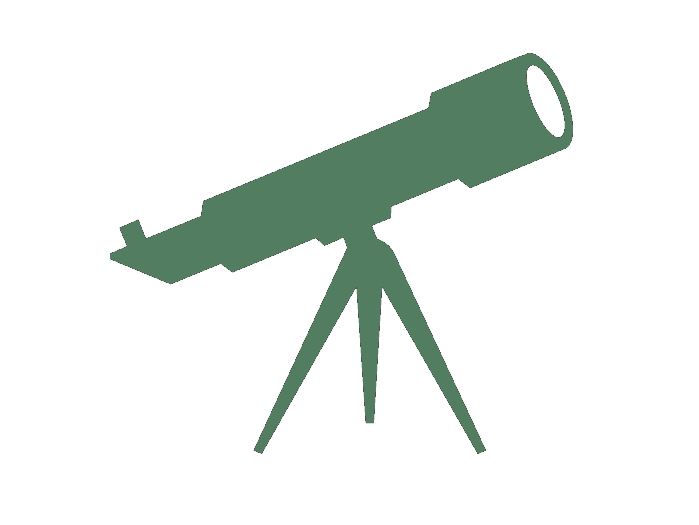
The Discovery of Uranus
When Uranus was discovered by astronomer William Herschel in 1781, he first mistook it for a star. Upon further observation, he believed it to be a comet. Herschel shared his findings with fellow astronomers, and in the end, they confirmed the object as a planet.
William Herschel suggested naming the planet Georgium Sidus after King George III, but the wider scientific community did not agree. Some suggested naming it Herschel, after the man who discovered it, but Johann Elert Bode, who helped to determine the object’s orbit, and therefore confirm Uranus is a planet, suggested naming it after Ouranos, a figure from Greek mythology.
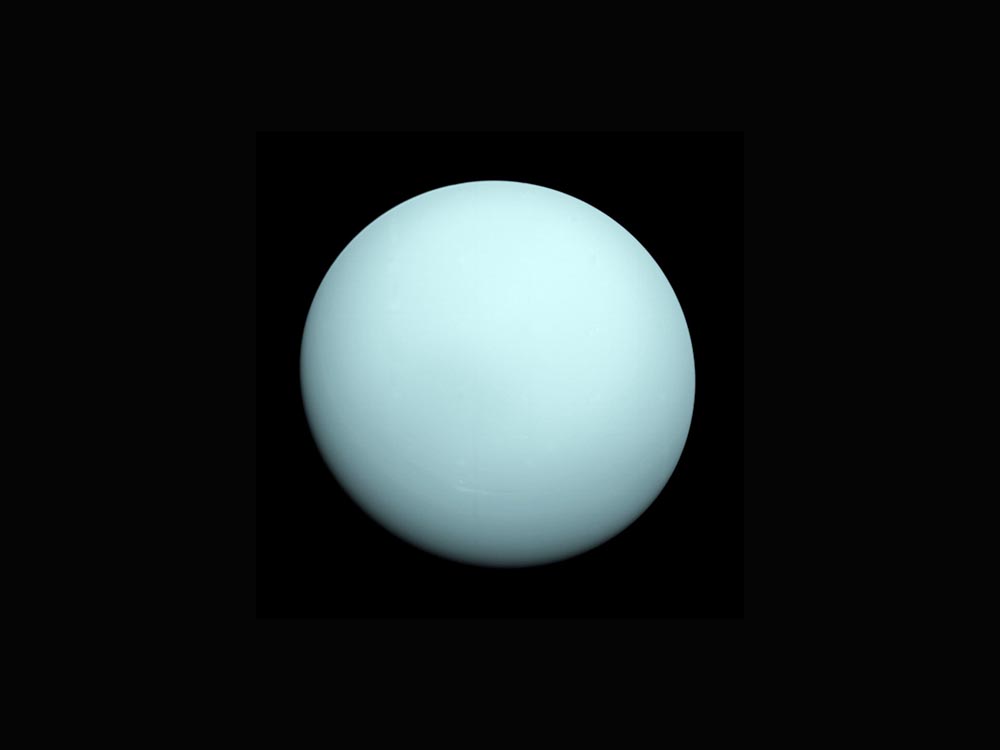
Who Was Uranus Named After?
The ice giant was named after the primordial Greek god, Ouranos. In Greek mythology, Ouranos, or Father Sky, was the father and ancestor of all Greek gods, including the 12 Titans.
Ouranos, who was the sky personified, was created by Gaia, Mother Earth, and the two of them ruled the universe together.
How Do You Pronounce “Uranus”?
According to Merriam-Webster, “yoo-ruh-nuss” is a perfectly valid way to pronounce “Uranus.”
In her article on The Planetary Society, Emily Lakdawalla suggests, “you’re a nuss,” which she says worked well when she was teaching a younger audience.
Of course, neither is guaranteed to keep the room titter-free, but the option is there if you wish to avoid puerility.
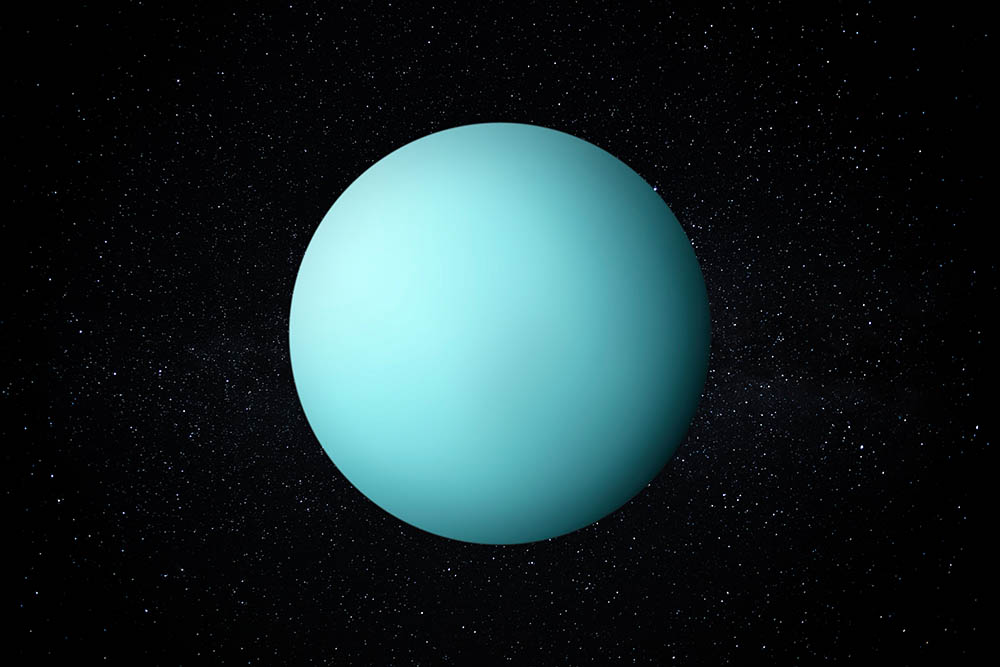
Does Uranus Have Any Nicknames?
Uranus is the only planet in our solar system to have an extremely tilted axis, so it appears as though it’s sitting on its side. The side-ways planet also has rings surrounding it, so when it’s viewed from directly ahead, it looks like a bulls-eye on a target. For this reason, Uranus is sometimes referred to as the Bulls-eye planet.
What is Uranus Made Of?
Uranus is made mostly of water, methane, and ammonia. Scientists believe it has a small rocky core. Its atmosphere is made of hydrogen, helium, hydrogen sulfide, and methane. Methane gives the planet its distinctive blue color, while hydrogen sulfide is responsible for the planet’s distinctive odor if you were to ever get close enough to smell it.
How Many Rings Does Uranus Have?
The ice giant is surrounded by 13 rings in total, divided into two sets. The inner set consists of 9, narrow rings, while the outer set contains a blue colored ring and a dark red colored ring.
Starting from the innermost ring, they are named Zeta, 6, 5, 4, Alpha, Beta, Eta, Gamma, Delta, Lambda, Epsilon, Nu, and Mu.
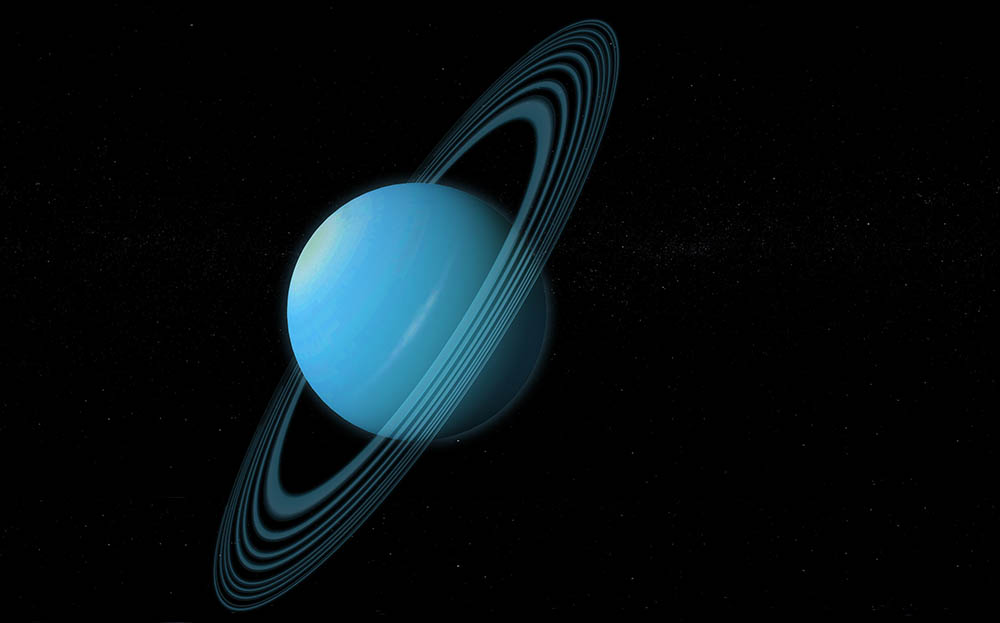
How Many Moons Does Uranus Have?
So far, astronomers have discovered 27 moons surrounding Uranus. Unlike most other moons in our solar system, which take their names from mythology, all of Uranus’s moons are named after literary characters. Most of Uranus’s moons pay homage to Shakespearean characters, but a few are named after characters from the works of Alexander Pope.
The Uranian moons, from closest to farthest, are:
- Cordelia
- Ophelia
- Bianca
- Cressida
- Desdemona
- Juliet
- Portia
- Rosalind
- Cupid
- Belinda
- Perdita
- Puck
- Mab
- Miranda
- Ariel
- Umbriel
- Titania
- Oberon
- Francisco
- Caliban
- Stephano
- Trinculo
- Sycorax
- Margaret
- Prospero
- Setebos
- Ferdinand
Featured Image Credit: NASA images, Shutterstock
About the Author Cheryl Regan
Cheryl is a freelance content and copywriter from the United Kingdom. Her interests include hiking and amateur astronomy but focuses her writing on gardening and photography. If she isn't writing she can be found curled up with a coffee and her pet cat.
Related Articles:
Can You Use Binoculars to Look At Stars? How to Choose the Right Pair
15 Crucial Facts About Ultraviolet Rays & the Sun
What Constellation Is Spica In? The Interesting Answer!
10 Interesting Leo Constellation Facts, Myths, and FAQs
15 Interesting Pegasus Constellation Facts, Myths, and FAQs
6 Interesting Sagittarius Constellation Facts, Myths, and FAQs in 2024!
What Are Constellations? Where Did They Come From?
8 Interesting Libra Constellation Facts, Myths, and FAQs
